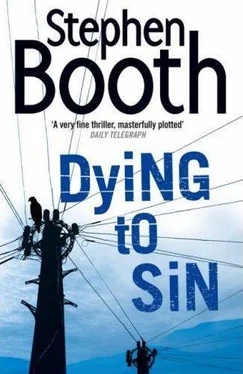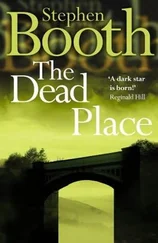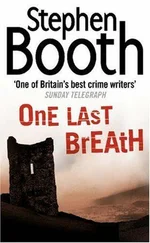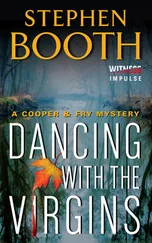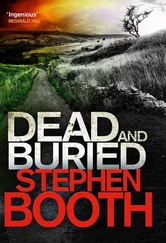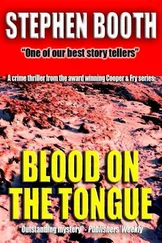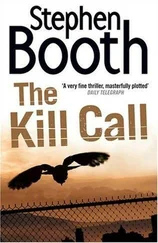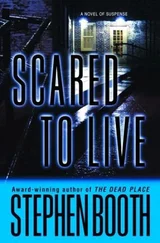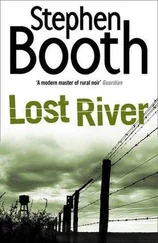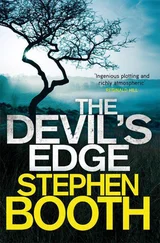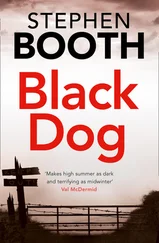Stephen Booth - Dying to Sin
Здесь есть возможность читать онлайн «Stephen Booth - Dying to Sin» — ознакомительный отрывок электронной книги совершенно бесплатно, а после прочтения отрывка купить полную версию. В некоторых случаях можно слушать аудио, скачать через торрент в формате fb2 и присутствует краткое содержание. Жанр: Полицейский детектив, на английском языке. Описание произведения, (предисловие) а так же отзывы посетителей доступны на портале библиотеки ЛибКат.
- Название:Dying to Sin
- Автор:
- Жанр:
- Год:неизвестен
- ISBN:нет данных
- Рейтинг книги:3 / 5. Голосов: 1
-
Избранное:Добавить в избранное
- Отзывы:
-
Ваша оценка:
- 60
- 1
- 2
- 3
- 4
- 5
Dying to Sin: краткое содержание, описание и аннотация
Предлагаем к чтению аннотацию, описание, краткое содержание или предисловие (зависит от того, что написал сам автор книги «Dying to Sin»). Если вы не нашли необходимую информацию о книге — напишите в комментариях, мы постараемся отыскать её.
Dying to Sin — читать онлайн ознакомительный отрывок
Ниже представлен текст книги, разбитый по страницам. Система сохранения места последней прочитанной страницы, позволяет с удобством читать онлайн бесплатно книгу «Dying to Sin», без необходимости каждый раз заново искать на чём Вы остановились. Поставьте закладку, и сможете в любой момент перейти на страницу, на которой закончили чтение.
Интервал:
Закладка:
‘Just the Primitive Methodist chapel.’
‘Exactly.’
Mrs Brindley was a slender, mannered woman with a carefully casual style that suited her. Both she and her husband were in their forties, pleasant and friendly. Fry wouldn’t normally have put much store in those qualities, but this was Rakedale, and they were a relief.
‘Our lifestyles send us further afield, I’m afraid, Sergeant,’ she said. ‘We need shops, restaurants, theatres. And sports facilities for the children. You won’t find any of those in Rakedale. So unless we’re feeling really lazy and decide to call at the village pub, we never go there. We head off to Hartington for the church, Buxton or Ashbourne for shopping and that sort of thing.’
In addition to the couple themselves, there was a teenage boy in the room, who Fry hadn’t been introduced to when she arrived. About eighteen, possibly a bit younger. She was finding it more difficult to tell these days. He said nothing, but his unblinking stare was a bit disconcerting. Presumably he was one of the reasons for the Brindleys’ lifestyle.
‘So you wouldn’t know the Suttons at Pity Wood Farm?’ asked Fry.
‘That’s across the other side of the village, isn’t it?’ said Mrs Brindley. ‘We’ve probably heard talk of them.’
‘Probably? Who from?’
‘I beg your pardon?’
‘Who would you have heard talk from, if you don’t go into the village?’
Mrs Brindley looked at her husband, confused. ‘Alex?’
‘There’s a kind of communication by osmosis in a place like this,’ he said. ‘People know things without you having to tell them. If you’ve already been to the village, I bet they knew you were coming long before you arrived.’
‘Yes, that was the impression I got.’
Brindley smiled. He was a good-looking man, tall and dark, but relaxed and co-operative in a way that she’d come to regard as uncharacteristic of people in this area. It must come from meeting too many criminals.
‘Well, it seems to work for us, too,’ he said. ‘We’re aware of the Suttons, yes. Two brothers, wasn’t it? But one of them died, not long ago. It was in the local paper, and they had his funeral at the Methodist chapel.’
‘Yes, that was Derek Sutton.’
‘But they were farmers, you see … We weren’t on visiting terms. We wouldn’t have much in common, I imagine.’
That was the truest sentence Fry had heard spoken for several days.
She finished her tea and looked out of the window. Sure enough, it was still raining. She couldn’t yet see any sign of Ben Cooper standing outside getting wet.
‘One last question. Have you heard of anyone going missing locally, while you’ve lived here? Word of that would get round, wouldn’t it? By osmosis or otherwise.’
‘No, and it’s rather worrying, Sergeant,’ said Mrs Brindley. ‘We heard on the news about something being found. There was a picture of the old farm. It’s terrible, what’s happened.’
She couldn’t even bring herself to mention an object so tasteless as a dead body.
‘Yes, terrible,’ said Fry.
‘We’re very anxious to help, if we can. But we’re so busy at the moment, all of us. You were quite lucky to catch us at home. We certainly haven’t had time to keep up with the local gossip.’
‘How many children do you have, Mrs Brindley?’
‘Just the two, Sergeant. Evan here, and Chrissie, our daughter. Chrissie is fourteen.’
Fry addressed the teenage boy who’d sat silently on the edge of the sofa, watching her throughout their visit.
‘I don’t suppose you know anyone in Rakedale either, Evan?’
‘No, hardly anyone. There are no young people, only old — I mean, old people.’
‘It’s difficult enough trying to keep Chrissie and Evan away from unsuitable company at school,’ said Mrs Brindley. ‘We wouldn’t want them going down into the village.’
‘No, I see.’
‘Should we be concerned about the safety of our children, Sergeant?’ she asked.
‘I doubt it,’ said Fry. ‘If a crime was committed — and we’re not even a hundred per cent certain of that yet — then it happened a while ago.’
The teacups were empty, and Murfin had consumed the last crumb of the last biscuit. It was time to leave the normal world and get back to Pity Wood Farm.
‘Oh, I suppose you must know David Palfreyman?’ she said.
‘Palfreyman? Yes, we do know him,’ said Brindley carefully. ‘He lives quite close, and we’ve said “hello” a few times.’
‘He used to be the local village bobby.’
‘Ah, the rural policeman. Yes, we’ve definitely seen him. You could hardly help but recognize what he is. I’m sorry.’
Throughout their visit, the son had sat watching Fry and Murfin as though they were putting on a show especially for his benefit. His own home version of Law and Order or CSI , maybe. Oh well, the climax would be a bit disappointing — no guns drawn, no armed officers summoned to slap on the cuffs. Just boring old police work. Just Detective Sergeant Diane Fry struggling through the mud, as usual.
10
Cooper dropped Fry and Murfin off at Pity Wood Farm and consulted the Ordnance Survey map again for his next call. To the south of Rakedale were the remains of Pity Wood itself, and a mound shown on the map as Soldier’s Knoll. Some of the fields and hillsides had evocative names, too — Godfrey’s Rough, Limbersitch, Biggin Hey, Callow Gore. They included a lot of leas, royds and haggs, all names for clearings in the woods. There must have been many more trees here at one time.
Tom Farnham lived near to the village of Newhaven, on the other side of the wood. There was no direct route, so Cooper turned the Toyota towards the A515.
He passed a farm called Organ Ground, where there was an even larger mountain of silage bags than at Pity Wood, though these were mostly white. Was there some significance to the different colours? Cooper searched his memory of farming practices, as he’d picked them up piecemeal during the last thirty years, but found he hadn’t the faintest idea. If he’d ever known, it was gone now. He’d have to ask Matt some time.
A little red Bowers bus turned the corner ahead of him. On the way towards Newhaven, he remembered that there was no mobile phone signal in this area. The display on his phone read ‘SOS calls only’. What a joke.
The transition between limestone and clay was obvious in the houses that you passed on this road. In the south of the county, the main building material was red brick, with clay tile roofs instead of stone. Many of the farms had converted their old buildings into holiday cottages. No farmworkers lived on the premises any more, and at some times of the year, temporary visitors would far outnumber the resident population.
Near the Newhaven brickworks, a small herd of black-and-white cattle bunched together round their water trough, standing in a sea of mud. Where a tractor had entered the field, the ground was completely liquefied. When one of the cows moved, its hooves splashed with a noise like a fish leaping in a river, and the legs and bellies of the animals were thick with semi-dried mud. The ubiquitous mire made Cooper long for the clean swell of the scree-scattered hills further north.
Here, the air was full of the hot smell of kilns. The clay and sand for the brickworks had all been quarried locally at one time. Even the ganister for making silica bricks had come from a quarry fifteen miles across the county at Wessington. But now all the materials used at Newhaven were imported.
Farnham’s house was sheltered from the road by a belt of trees, and Cooper might have driven past without seeing it, but for a curl of smoke from the chimney and a glint of rain on a steel cattle grid protecting Mr Farnham’s gateway from marauding livestock.
Читать дальшеИнтервал:
Закладка:
Похожие книги на «Dying to Sin»
Представляем Вашему вниманию похожие книги на «Dying to Sin» списком для выбора. Мы отобрали схожую по названию и смыслу литературу в надежде предоставить читателям больше вариантов отыскать новые, интересные, ещё непрочитанные произведения.
Обсуждение, отзывы о книге «Dying to Sin» и просто собственные мнения читателей. Оставьте ваши комментарии, напишите, что Вы думаете о произведении, его смысле или главных героях. Укажите что конкретно понравилось, а что нет, и почему Вы так считаете.
